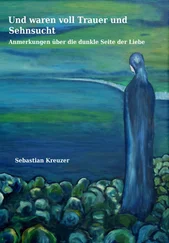O’Byrne doesn’t fare well. He decides to get out of the Army rather than renew his contract, but he can’t begin to tackle the paperwork in his state of mind. His sister flies in for a visit, and when they go walking around town, O’Byrne becomes convinced someone is following them and takes defensive action. He was less scared in the Korengal, where people were actually shooting at him, than in Italy, where it’s mostly in his head. Eventually his paranoia starts to fulfill itself. He gets attacked in Venice; a guy breaks a bottle over his head and O’Byrne has to jump into a canal to escape. Soon afterward he falls down a flight of concrete stairs and cracks a front tooth and splits open an eyebrow. His explanation, when asked, is that he was attacked by a wolverine .
When I get to Vicenza, O’Byrne has gone AWOL. That’s a problem, because his military ID is about to expire, and when it does he’ll be in some weird limbo where he won’t be allowed on base but he won’t be allowed to go home either. One night Second Platoon is having a barbecue and the guys are standing around talking to some Romanian strippers, and O’Byrne finally calls Hoyt’s cell phone. Hoyt talks to him for a minute and then hands the phone to me with a “See what I mean?” kind of look. O’Byrne is so upset he can barely talk. He’s drunk at a bar in Florence and his wallet is missing and his cell phone has died. He’s talking on a cell he borrowed from some guy in the bar. “The Army’s trying to kill me,” he says. “I don’t dare come back. They’re trying to kill me.”
He finally shows up the next day and Nevala drives him around the base trying to take care of his paperwork. I tag along to see what happens. O’Byrne refers to the base as “Coward’s Land,” because it’s a place where guys who have never done anything but fill out paperwork can boss around guys who have actually fought for their country. A whole new set of rules apply that seem almost deliberately punitive of the traits that make for a good combat soldier. We park in front of something called the Transition Office, and O’Byrne says, “Come in and watch, this is gonna be good.”
There’s a middle-aged black lady behind the desk who seems perfectly nice. O’Byrne takes a mint out of a jar on her desk and gives her one and explains that his paperwork is late and his ID expires in two days. By then he’s supposed to be on a plane home .
“The only acceptable reason for not being on that plane is if you’re in jail,” the woman says. “And if you’re not on that plane you’ll be arrested and put in jail.”
O’Byrne maintains his composure. “So what should I do?” he asks .
“Call your commanding officer,” the woman says, “and ask him to have you arrested. That way you won’t be breaking the rules when you don’t get on the plane.”
If she understands the irony at work here she doesn’t betray it. “Let me get this right,” O’Byrne says. “You want me to ask to get arrested now so I won’t get arrested later?”
“That’s right,” the woman says and returns to her paperwork .
We get up to go and O’Byrne turns to me as we walk out the door. “See?” he says. “See why I hate the Army?”
The Army that saved O’Byrne from himself is now destroying the very man it created — or at least that’s how it seems to O’Byrne. The new battalion commander finally intervenes and sees to it that O’Byrne gets home safely, but civilian life goes even worse than garrison life. Months later, I get a note from him explaining that he wants to go back into the Army. “It’s as if I’m self-destructive, trying to find the hardest thing possible to make me feel accomplished,” he writes. “A lot of people tell me I could be anything I want to be. If that’s true, why can’t I be a fucking civilian and lead a normal fucking life? Probably ’cause I don’t want to.”
You got me there, O’Byrne; you got me there, brother. Maybe the ultimate wound is the one that makes you miss the war you got it in .
Selected Sources and References
Ackerl, Kerstin, Michaela Atzmueller, and Karl Grammer. “The Scent of Fear.” Neuroendocrinology Letters , Vol. 23, No. 2, April 2002.
Arthurs, Cmd. Sgt. Maj. Ted G. Land with No Sun: A Year in Vietnam with the 173rd Airborne . Stackpole Books, 2006.
Azar, Beth. “Exposure to Aggression May Have Lasting Effects.” American Psychological Association Monitor , Vol. 30, No. 9, October 1999.
Aziz-Zadeh, Lisa, Marco Iacoboni, and Eran Zaidel. “Hemispheric Sensitivity to Body Stimuli in Simple Reaction Time.” Experimental Brain Research , Vol. 170, No. 1, March 2006, pp. 116–121.
Bar, Hervé. “Wood Traffickers Devastate Afghan Forests.” Agence France-Presse, March 5, 2003.
Barry, John, and Michael Hirsh. “Chopper Down over Kunar: A Special Ops Unit Calls for Help, and a Rescue Goes Awry.” Newsweek , July 11, 2005, p. 31.
Blumenfeld, Laura. “The Sole Survivor: A Navy Seal, Injured and Alone, Was Saved by Afghans’ Embrace and Comrades’ Valor.” Washington Post , June 11, 2007.
Botwinick, Jack, PhD, and Larry W. Thompson, PhD. “Age Difference in Reaction Time: An Artifact?” Gerontologist , Vol. 8, No. 1, Spring 1968, pp. 25–28.
Bourne, Peter G., ed. The Psychology and Physiology of Stress, with References to Special Studies of the Viet Nam War . Academic Press, 1969.
Boyer, Maud, Arnaud Destrebecqz, and Axel Cleeremans. “The Serial Reaction Time Task: Learning Without Knowing, or Knowing Without Learning?” In Proceedings of the 20th Annual Conference of the Cognitive Science Society . Erlbaum, 1998, pp. 167–172.
Coates, Stephen. “Moves to Oust Taliban Gain Momentum.” Agence France-Presse, September 27, 2001.
Costa, Paul T., Jr., Antonia Terracciano, and Robert R. McCrae. “Gender Differences in Personality Traits Across Cultures: Robust and Surprising Findings.” Journal of Personality and Social Psychology , Vol. 81, No. 2, 2001, pp. 322–331.
Daddis, Maj. Gregory A. “Understanding Fear’s Effect on Unit Effectiveness.” Military Review , Vol. 84, No. 4, July–August 2004, pp. 22–27.
Darack, Ed. “The Kunar Province of Afghanistan.” Weatherwise , May–June 2006.
——— . Victory Point: Operations Red Wings and Whalers — the Marine Corps’ Battle for Freedom in Afghanistan . Berkeley Caliber, 2009.
Deaner, Robert O. “More Males Run Fast: A Stable Sex Difference in Competitiveness in U.S. Distance Runners.” Evolution and Human Behavior , Vol. 27, 2006, pp. 63–84.
Feng, Jing, Ian Spence, and Jay Pratt. “Playing an Action Video Game Reduces Gender Differences in Spatial Cognition.” Psychological Science , Vol. 18, No. 10, 2007.
Fontenot, Gregory. “Fear, God, and Dreadnought.” Military Review , Vol. 75, Issue 4, July–August 1995.
Gall, Carlotta. “War-Scarred Afghanistan in Environmental Crisis.” New York Times , January 30, 2003.
Geary, David C., and M. Catherine DeSoto. “Sex Differences in Spatial Abilities Among Adults from the United States and China: Implications for Evolutionary Theory.” Evolution and Cognition , Vol. 7, No. 2, 2001.
Glatzer, Bernt. “War and Boundaries in Afghanistan: Significance and Relativity of Local and Social Boundaries.” Die Welt des Islams , New Series, Vol. 41, Issue 3, November 2001, The Making and Unmaking of Boundaries in the Islamic World , pp. 379–399.
Читать дальше
Конец ознакомительного отрывка
Купить книгу












